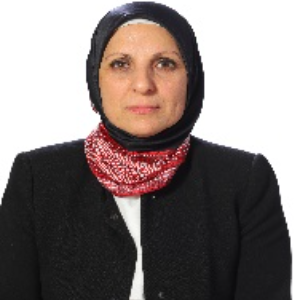Title : Factors influencing nursing students' perceptions and attitudes toward artificial intelligence: An examination of personality traits, AI literacy, emotional responses, and self-efficacy
Abstract:
Introduction: The healthcare industry is rapidly evolving, and Artificial Intelligence (AI) is emerging as a transformative technology that promises to revolutionize patient care and medical education. As AI plays a more significant role in healthcare settings, it is crucial to understand nursing students' perceptions and attitudes toward AI. This study aims to explore the complex interactions among personal characteristics, AI literacy, AI-induced anxiety, and self-efficacy and how these factors collectively influence attitudes toward AI. By doing so, we can guide the development of intervention strategies and identify critical factors influencing nursing students' readiness and openness to engage with AI technologies in their future professional practice.
Design: Quantitative, descriptive, cross-sectional, and correlational study design was used.
Finding: Our analysis reveals that personality traits, such as openness to experience and conscientiousness, significantly correlate with positive attitudes toward AI. AI literacy emerges as a critical factor, with higher levels of understanding and familiarity with AI associated with more favorable perceptions. Emotional responses, including fear and excitement, play pivotal roles in shaping students' attitudes, indicating the need to address emotional factors in AI education. Lastly, self-efficacy strongly influences students' confidence in their ability to effectively use AI in nursing practice, suggesting that enhancing self-efficacy could improve acceptance of AI technologies.
The findings highlight the importance of incorporating comprehensive AI education programs in nursing curricula tailored to address emotional responses and improve AI literacy and self-efficacy. Understanding these factors is essential for preparing nursing students to navigate the challenges and opportunities presented by AI in healthcare, ultimately enhancing patient care and nursing practice.
Conclusion: This examination sheds light on the multifaceted influences on nursing students' perceptions of AI, providing valuable insights for educators, policymakers, and healthcare professionals in integrating AI into nursing.
Audience Take Away:
- By the end of this presentation, attendees will gain a comprehensive understanding of the various factors that shape the attitudes of nursing students towards AI. Our discussion will highlight the crucial role of education, personal characteristics, and experience in influencing these attitudes.
- We will delve into the strong correlation between knowledge of AI and positive attitudes towards its application in healthcare. Moreover, we will analyze the impact of anxiety and self-efficacy on the adoption of AI in the nursing profession. Additionally, we will explore how personal characteristics and experience can shape attitudes towards AI.
- Furthermore, we will emphasize the importance of practical experience with AI in healthcare settings. Finally, we will discuss the necessity of reforming nursing education curricula to better equip students for the use of AI in healthcare.



